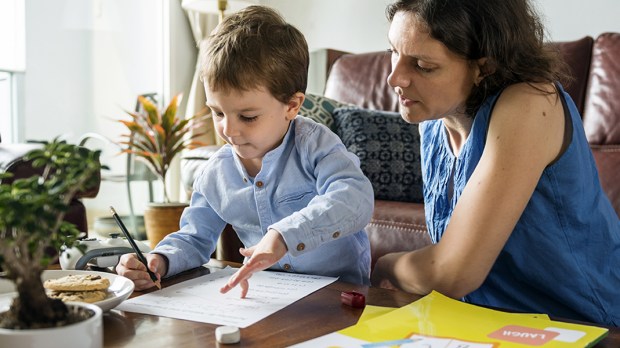Over the past 18 months, large numbers of parents became homeschoolers — or at least the central overseers of their children’s education as school moved online during pandemic shut downs. And while many families look forward to the kids going back to school in-person full-time, others have found schooling-at-home to be better than expected — so they’re thinking about making it a more permanent thing.
There are pros and cons to every schooling option, and different scenarios work better for different kids and families. But if you’re vacillating between homeschooling and sending your kids back to a brick-and-mortar school, here are 3 questions to ask yourself to help with your decision-making.
1What are my biggest goals for my child in the coming year?
This is one of the most important questions you can ask. Depending on the age and needs of your child, your answers may vary. Many parents who choose homeschooling, particularly those with young children, say that their main goal is to foster a love of learning in their child and to tailor schooling more to the child’s needs. With homeschooling a child can go at his or her own pace and spend extra time on areas of interest, whether that’s music, art, history, reading, sports, nature studies, etc. If children learns to love learning when they are young, they usually retain that quality for the rest of their lives.
But your main goal for your child right now might be something different — it might be to give them more structure, or provide them access to better sports opportunities. Your main goals for your child may point to a conventional school environment.
So take some time to think about what your major objectives are for your child in the coming year. And keep that last part in mind — in the coming year. You do not need to make a choice for the rest of their academic life; it’s okay to take it year by year.
2Do we have the resources we need?
This is important because it’s not easy to homeschool without support — for both the homeschooling parent(s) and the homeschooled child. Today, there are many ways to find support — local coops and programs, social media groups, books and websites, online schools and curricula.
Your child needs support, too — in the form of social opportunities, friends, and others who may help with their education.
So if you’re trying to decide about whether to homeschool, join some support groups and talk to other homeschoolers — it can make a huge difference in your ability to decide what’s best for your family.
3Am I ready to change my mindset?
Our expectations for own kids are usually based in how we ourselves were raised and schooled. If that was public or private school for us, that’s all we know and what we expect for our own kids. Homeschooling requires a different way of thinking, a shift in how we think about education and learning.
Homeschooling invites us to be more flexible, creative, and connected. It may require us to think outside the box to meet our kids’ needs, and it may demand courage because our close family and friends do not understand our choices. This is where the support network mentioned above comes in handy — when you know others who’ve chosen to homeschool, it’s easier to shift your attitude, expectation and mindset.
Whether you decide to send your kid to school, sign them up for distance learning through a school, or homeschool them, just remember that there is no perfect way — children can learn and succeed in different environments and every option has advantages and disadvantages. Consider what’s best for the whole family, given your options, and confidently move forward, asking God to give you wisdom and patience as you get ready for the next school year.


